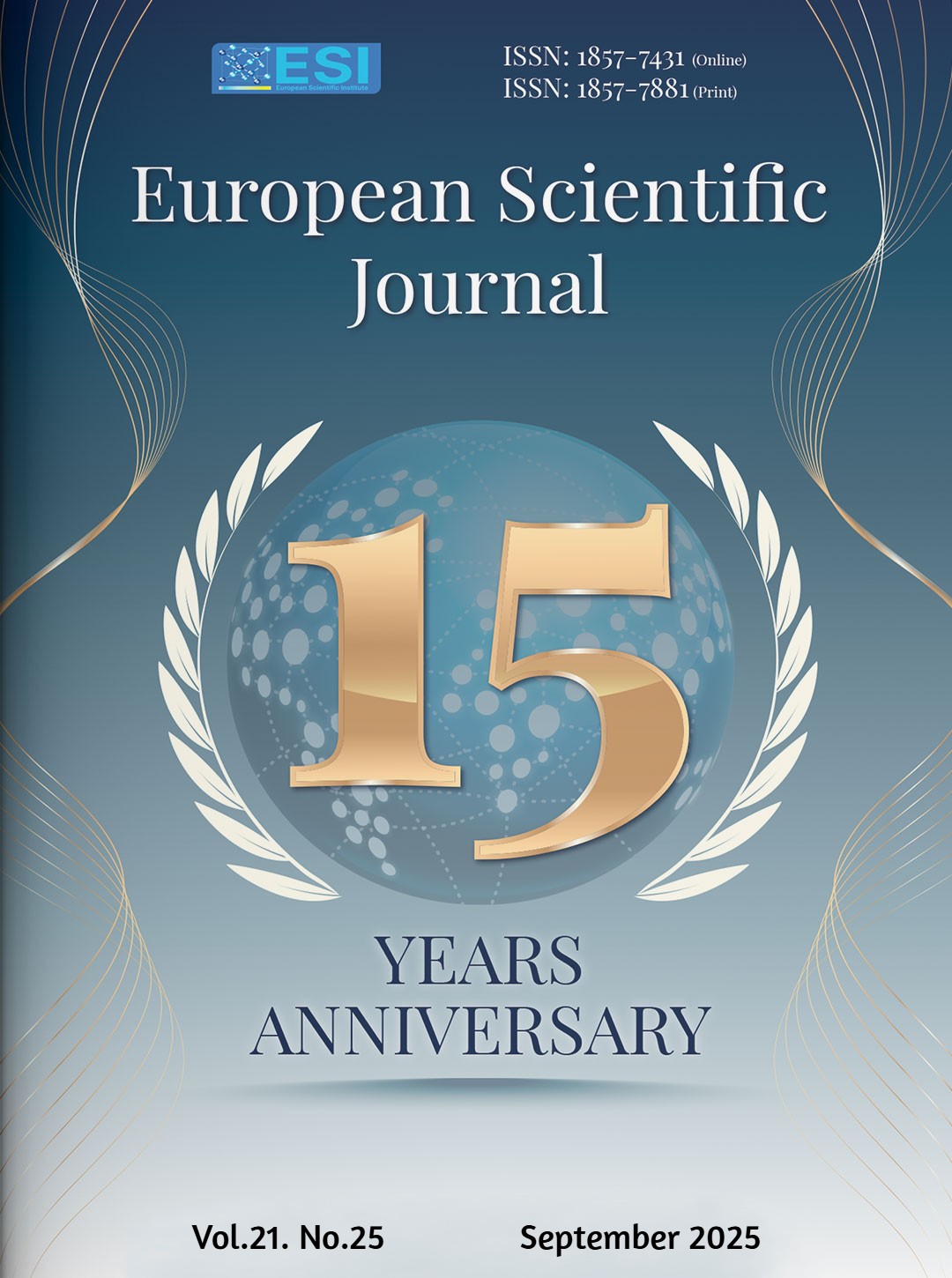Ethical Issues of Generative AI in the Aviation Cybersecurity Environment
Abstract
The present study aims to analyze the ethical issues related to the use of generative artificial intelligence in aviation, with a particular focus on cybersecurity aspects. Therefore, all existing ethical concerns regarding bias, misinformation, fraud, privacy, and copyright infringement on the internet apply equally to content created by generative artificial intelligence. These concerns underscore the well-documented issues about the bias of internet search engine algorithms. Numerous parties have contended that ethical considerations should have been a factor in the development of this technology.
This article discusses the results of a survey conducted among students of the Polish Air Force Academy, which addresses key issues related to regulation, training, and awareness-raising regarding the ethical use of artificial intelligence. A mixed-methods approach was utilized in the present study. Quantitative data were collected via an online survey (N = 57, F = 27, M = 30) conducted between September and October 2024. Furthermore, a total of 15 semi-structured anonymous interviews were conducted with experts in cybersecurity and AI ethics to obtain qualitative information. The interviews were conducted with aviation specialists, cybersecurity analysts, and AI ethics researchers who had between five and 20 years of experience. The aviation sector was selected as the subject of the study due to its high sensitivity to technological risk, its reliance on secure systems, and the critical importance of public trust in automated and AI-assisted systems. In Poland, there is only one university that specializes in aviation and accepts both military and civilian students. This research will make a substantial contribution to enhancing aviation safety in the future through the implementation of a robust management framework based on comprehensive knowledge. This research is of particular pertinence in the context of the ongoing war in Ukraine and in Poland's neighborhood.
Downloads
PlumX Statistics
References
2. Ethics guidelines for trustworthy AI, https://digital-strategy.ec.europa.eu/en/library/ethics-guidelines-trustworthy-ai (25.08.2025)
3. EU AI Act: first regulation on artificial intelligence, https://www.europarl.europa.eu/topics/en/article/20230601STO93804/eu-ai-act-first-regulation-on-artificial-intelligence (25.08.2025)
4. EASA, https://www.easa.europa.eu/en (25.08.2025)
5. FAA, https://www.faa.gov/ (25.08.2025)
6. Ferrag, M. A., Alwahedi, F., Battah, A., Cherif, B., Mechri, A., Tihanyi, N., Bisztray, T., & Debbah, M. (2025). Generative AI in cybersecurity: A comprehensive review of LLM applications and vulnerabilities. Internet of Things and Cyber-Physical Systems, 5, 1–46. https://doi.org/10.1016/j.iotcps.2025.01.001
7. Gupta, M., Akiri, C., Aryal, K., Parker, E., & Praharaj, L. (2023). From ChatGPT to Threatt: Impact of Generative AI in Cybersecurity and Privacy. IEEE Access, 11, 80218–80237, https://doi.org/10.1109/ACCESS.2023.3300381
8. Ibrar W., Mahmood D., Sami Al-Shamayleh A., Ahmed G., Alharthi S.Z., Akhunzada A. (2025). Generative AI: a double-edged sword in the cyber threat landscape. Applied Intelligence, https://doi.org/10.1007/s10462-025-11285-9.
9. Kam, H.-J., Zhong, C., Johnston, A. C. (2024). The impacts of generative AI on the cybersecurity landscape. Thirty-Second European Conference on Information Systems (ECIS 2024), Paphos, Cyprus, https://doi.org/10.30560/ijas.v8n2p1
10. Kritika, S. (2024). Generative AI for Cybersecurity: An Introduction. Cybersecurity Review, 11(3), 205–221, DOI: 10.4018/979-8-3693-8557-9.ch009
11. Kushwaha, M. P. (2024). The Ethical Dilemmas of AI in Cybersecurity. ISC2 Insights, https://www.isc2.org/Insights/2024/01/The-Ethical-Dilemmas-of-AI-in-Cybersecurity
12. Ligot D.V., AI Governance: A Framework for Responsible AI Development (May 5, 2024). Available at SSRN: https://ssrn.com/abstract=4817726 or http://dx.doi.org/10.2139/ssrn.4817726
13. Nah, F. F.-H., Zheng, R., Cai, J., Siau, K., & Chen, L. (2023). Generative AI and ChatGPT: Applications, challenges, and AI-human collaboration. Journal of Information Technology Case and Application Research, 25(3), 277–304. https://doi.org/10.1080/15228053.2023.2233814
14. Raman, R., Calyam, P., & Achuthan, K. (2024). ChatGPT or Bard: Who is a better Certified Ethical Hacker? Computers & Security, 140, 103804. https://doi.org/10.1016/j.cose.2024.103804
15. Rodgers, W., Murray, J. M., Stefanidis, A., Degbey, W. Y., & Tarba, S. Y. (2023). An artificial intelligence algorithmic approach to ethical decision-making in human resource management processes. Human Resource Management Review, 33, 100925. https://doi.org/10.1016/j.hrmr.2022.100925
16. Singh, S. P., Tyagi, R., & Mishra, S. (2024). AI-Powered Cybersecurity: Balancing Efficiency and Ethical Considerations. In National Conference on Advancement of Information Technology (NCAIT-2024), Jaipur, India, https://www.researchgate.net/publication/384474301_AI-Powered_Cybersecurity_Balancing_Efficiency_and_Ethical_Considerations
17. Wang, M. (2024), Generative AI: A New Challenge for Cybersecurity. Journal of Computer Science and Technology Studies, 6(2), 13-18, https://doi.org/10.32996/jcsts.2024.6.2.3
18. Żmigrodzka, M. (2023). Impact of new technologies on developing aviation safety training. Safety & Defense, 9(2), https://doi.org/10.37105/sd.207
19. Żmigrodzka, M. (2024). Sztuczna inteligencja a bezpieczeństwo zarządzania operacjami lotniskowymi. Rocznik Bezpieczeństwa Morskiego, XVIII(null), 777-794, https://doi.org/10.5604/01.3001.0054.8329.
Copyright (c) 2025 Malgorzata Zmigrodzka

This work is licensed under a Creative Commons Attribution 4.0 International License.








